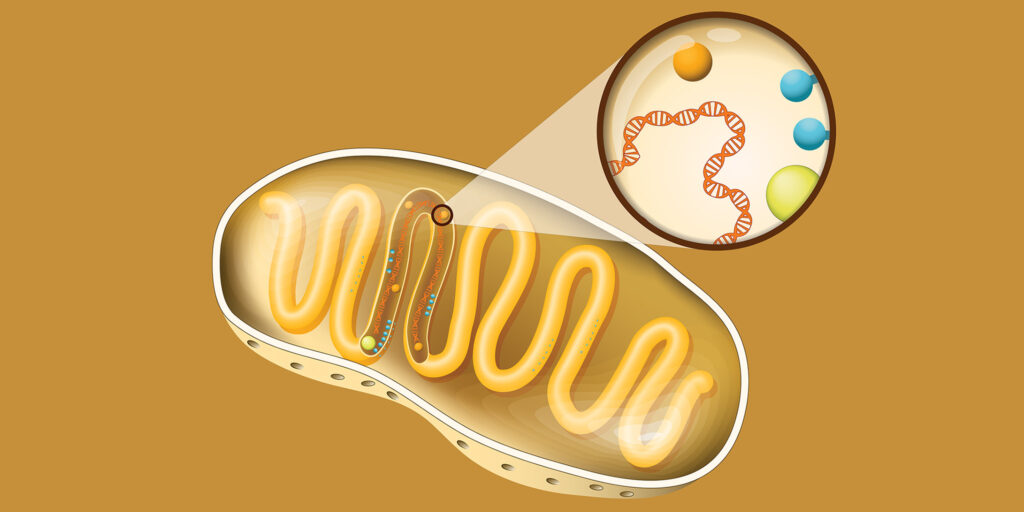
Progress Now: Immunotherapy Study Recruiting, Drug Cleared for Expanded Access, and More
By MDA Staff | Friday, November 14, 2025
Amyotrophic lateral sclerosis (ALS)
Immunotherapy Study Recruiting
Coya Therapeutics has launched the phase 2 ALSTARS trial to evaluate the safety and efficacy of COYA 302, an investigational treatment for adults with ALS. This large trial will recruit an estimated 120 people with ALS and be conducted at approximately 25 sites in the US and Canada.
COYA 302 combines two immunotherapies: low-dose interleukin-2 (LD IL-2) and DRL_AB (similar to abatacept, used to treat rheumatoid arthritis). This combination therapy is intended to enhance the function of regulatory T cells (white blood cells that help control the immune system’s response) and suppress inflammation. The study will assess whether this changes the progression of ALS.
The study begins with a randomized, double-blind period in which participants will be randomly assigned to receive COYA 302 or a placebo (an inactive substance) for 24 weeks. Those who complete this part of the study may be eligible to participate in an additional 24-week active extension phase. COYA 302 is administered via subcutaneous (under the skin) injection.
For more information, visit ClinicalTrials.gov and enter NCT07161999 in the “Other terms” search box.
Drug Cleared for Expanded Access
The US Food and Drug Administration (FDA) has cleared NKGen Biotech Inc. to launch an Expanded Access Program (EAP) to make its experimental therapy troculeucel available outside of clinical trials to patients with neurodegenerative diseases, including ALS.
NKGen has an ongoing phase 2a clinical trial studying troculeucel as a treatment for Alzheimer’s disease. However, two phase 1 studies demonstrated that troculeucel, administered via intravenous (into the vein) infusion, crosses the blood-brain barrier and reduces signs of neuroinflammation, which may be beneficial for other neurodegenerative diseases. The FDA authorization will allow NKGen to offer expanded access to troculeucel to up to 20 patients.
To learn more about NKGen’s Expanded Access Program, visit nkgenbiotech.com/clinical-trials.
Duchenne muscular dystrophy (DMD)
Participants Needed for Gene Therapy Trial
Regenxbio Inc. is enrolling boys ages 4-11 living with DMD to participate in a phase 3 clinical trial to evaluate the safety, tolerability, and efficacy of the investigational gene therapy RGX-202 to treat DMD.
In DMD, a gene mutation in the dystrophin gene prevents cells from making enough working dystrophin protein. Dystrophin protein is needed for muscles to function and repair themselves. RGX-202 is a single-dose gene therapy designed to introduce a shortened dystrophin protein (microdystrophin) into the body, potentially slowing the loss of muscle function.
This study, known as AFFINITY DUCHENNE, is a multicenter, open-label study. The study will last approximately two years and involve a one-time intravenous (in the vein) infusion and approximately 26 clinic visits to evaluate the effects of RGX-202 by various tests. At the end of two years, participants will be encouraged to enroll in a three-year, long-term follow-up study to monitor the participants’ health and the effects of RGX-202.
Travel support is available for eligible participants and their caregivers.
To learn more about the study, including locations and inclusion and exclusion criteria, visit RegenxBioDMDTrials.com, or go to ClinicalTrials.gov and enter NCT05693142 in the “Other terms” search box. To inquire about participation, email duchenne@RegenxBio.com.
Gene Therapy Study Enrolling Boys
Researchers at Solid Biosciences are seeking boys with DMD to participate in a phase 1/2 clinical trial, called INSPIRE DUCHENNE. This study will evaluate the safety and efficacy of the investigational gene therapy SGT-003, designed to introduce a microdystrophin protein to replace the dystrophin protein that is missing in DMD.
This is a multicenter, open-label study lasting five years for each participant. The drug will be administered as a single intravenous (in the vein) infusion. For the first 30 days following treatment, participants will have frequent visits to the hospital for check-ups and bloodwork to monitor the safety and effects of SGT-003. Visits will become less frequent over the following years of the study.
Researchers are currently enrolling boys ages 0-4 who are nonambulatory or ambulatory, and boys ages 4-12 who are ambulatory. They plan to add groups of boys ages 12-18, ambulatory and nonambulatory, at a later date, but are not yet enrolling them.
Travel support is available for eligible participants and their caregivers.
To learn more about the study, including locations and inclusion and exclusion criteria, visit ClinicalTrials.gov and enter NCT06138639 in the “Other terms” search box. To inquire about participation, email ClinicalTrials@SolidBio.com.
Facioscapulohumeral muscular dystrophy (FSHD)
Drug Targets Root Cause of FSHD
Epicrispr Biotechnologies is enrolling adults with FSHD in a phase 1/2 clinical trial for EPI-321, an investigational therapy designed to address the root cause of the disease.
In FSHD, genetic mutations result in abnormal activation of the DUX4 gene, leading to progressive muscle degeneration, especially in the face, shoulders, and arms. EPI-321 is a gene-modifying therapy designed to silence the abnormal expression of the DUX4 gene in skeletal muscle. The drug is administered via a one-time intravenous (into the vein) infusion.
The trial is expected to enroll nine people with FSHD, ages 18-75. The study’s main goal is to evaluate the safety and tolerability of the experimental therapy. Participants will visit a clinic regularly for tests and checkups for about five years after receiving the therapy.
According to Epicrispr, in preclinical studies, EPI-321 demonstrated robust suppression of DUX4 expression and protection of muscle tissue. The US Food and Drug Administration (FDA) awarded the drug Fast Track, Rare Pediatric Disease, and Orphan Drug designations. These designations incentivize the development of treatments for rare diseases.
For more information, visit ClinicalTrials.gov and enter NCT06907875 in the “Other terms” search box.
Myasthenia gravis (MG)
Positive Results for Self-Administered Therapy
Gefurulimab, an experimental self-administered injection therapy, performed better than a placebo at easing symptoms of generalized MG (gMG) and gives patients more control over their therapy, according to Alexion, AstraZeneca Rare Disease.
The drugmaker released positive high-level results from a global, randomized, double-blind, placebo-controlled phase 3 trial in adults with anti-acetylcholine receptor (AChR) antibody-positive gMG. This is the most common type of MG. The trial involved more than 250 people with gMG across 20 countries.
In MG, the immune system attacks the neuromuscular junction, blocking signals from nerves to muscles. Gefurulimab is a complement C5 inhibitor, which means it works by binding to the C5 protein in the immune system and blocking it from targeting the body’s own healthy cells.
Two other C5-blocking therapies developed by Alexion — ravulizumab-cwvz (Ultomiris) and eculizumab (Soliris) — are already approved for patients with AChR antibody-positive gMG. But while Ultomiris and Soliris are given by intravenous (into the vein) infusions that must be administered by a healthcare provider, gefurulimab is given by subcutaneous (under the skin) injection, and can be self-administered by patients or given by caregivers.
To learn more about the study, visit ClinicalTrials.gov and enter NCT05556096 in the “Other terms” search box.
Myotonic dystrophy (DM)
Gene Therapy Trial Enrolling
Researchers are enrolling patients in a phase 1/2 clinical trial evaluating the safety, tolerability, and efficacy of SAR446268, an experimental gene therapy for DM type 1 (DM1). The open-label, multicenter study, known as BrAAVe, is sponsored by Sanofi.
DM1 is caused by abnormal DNA expansion within the DMPK gene, which leads to weakness in voluntary muscles. SAR446268 is designed to reduce levels of abnormally long DMPK messenger RNA (mRNA) in muscle cells, improving muscle function.
The trial is expected to enroll approximately 32 people with DM1, ages 10-50, at sites in Florida, New York, and Argentina. It will begin with a dose escalation phase, during which participants will receive a single infusion of SAR446268 at one of several doses. Based on findings from the first phase, a dose will be identified for the dose expansion phase of the study.
Each participant will be involved with the study for about two years, including screening before and follow-up after the drug infusion.
To learn more about the study, including inclusion and exclusion criteria, visit ClinicalTrials.gov and enter NCT06844214 in the “Other terms” search box.
Pompe disease
Study Compares LOPD Therapies
Top-line results from a phase 3 clinical trial comparing alglucosidase alfa (Lumizyme) to avalglucosidase alfa (Nexviazyme) showed that Nexviazyme outperformed Lumizyme at improving lung function in adults with late-onset Pompe disease (LOPD).
Lumizyme is approved by the US Food and Drug Administration (FDA) for treatment of early-onset (infantile) and late-onset Pompe disease in all ages. Nexviazyme is approved by the FDA for treatment of LOPD for ages 1 year and older. Both Lumizyme and Nexviazyme are enzyme replacement therapies (ERT) that contain a lab-made version of acid alpha-glucosidase (GAA), the enzyme missing or defective in Pompe disease. Nexviazyme is designed to enhance the delivery of GAA to muscle cells, which they need to function properly.
The study found that adults with LOPD who switched from Lumizyme to Nexviazyme improved in measures of lung volume and airflow, and these improvements persisted for at least two years after making the switch. The study was funded by Sanofi, which markets both therapies.
To read the study results, visit onlinelibrary.wiley.com/doi/10.1002/jmd2.70033.
Clinical Trial Terms to Know
Double-blind: Neither researchers nor participants know which participants are taking the drug or placebo.
Multiarm: Comparing several experimental treatments against a common control group within a single study.
Multicenter: The trial is completed at more than one site.
Open-label: Participants know what treatment they are receiving.
Placebo-controlled: Some participants receive the treatment being tested and some receive a placebo that looks like the real treatment but has no active ingredients.
Randomized: Participants are randomly assigned to groups taking the drug or placebo.
Next Steps and Useful Resources
- Find a list of trials actively recruiting individuals to help advance research and treatment development.
- Stay up to date on Quest content! Subscribe to Quest Magazine and Newsletter.
Disclaimer: No content on this site should ever be used as a substitute for direct medical advice from your doctor or other qualified clinician.




